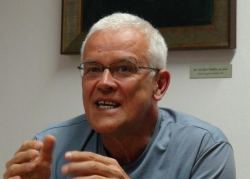Education and the Imperative of Constant Change, or on “Kings” and “Philosophers”
The overarching theme of this year's ECER is “Reforming Education and the Imperative of Constant Change: Ambivalent roles of policy and educational research” and this keynote would like to address some of its many aspects. At a glance, the argument that close mutual relationship between education policy and educational research is a prerequisite for the effective modernization and systemic reform of the education system in modern democratic societies is expected and unproblematic. Educational policy should not be based on unreflected and undisputed decisions based on given political beliefs, and educational research should not be locked in "ivory towers". However, detailed consideration leads to the conclusion that this ratio is complex and, last but not least, ambivalent as stated in this year's conference theme. The requirements imposed by the need for “effective” governance, establish the discourse, which is in many points fundamentally different from the discourse imposed by the need for unbiased “search for truth”. Diversity and opposability of these two discourses is not a discovery of our times. If Plato, on the one hand, yet dreamed of a “philosopher – king” (Plato, 360 BCE), once much later Kant replied him that the utopia in which “kings should philosophise, or philosophers become kings, is not to be expected” neither “desired” (Kant, 1795). We will, therefore, try to reconsider how this dichotomy is reflected in our time and in the dilemmas facing the current, but very possibly also the next generation of researchers and policy makers.
About Pavel Zgaga

In 2001 he co-founded the Centre for Educational Policy Studies (CEPS) at the University of Ljubljana. He has held several research grants and directed and/or cooperated in a number of national and international research projects. These projects have been mainly concerned with educational policies and in particular higher education in the contemporary European context as well as with teacher education as a specific area of higher education. In these areas, he has been also co-operating with relevant agencies of the European Commission and with several international organisations, e.g. Council of Europe, UNESCO, OECD, etc.